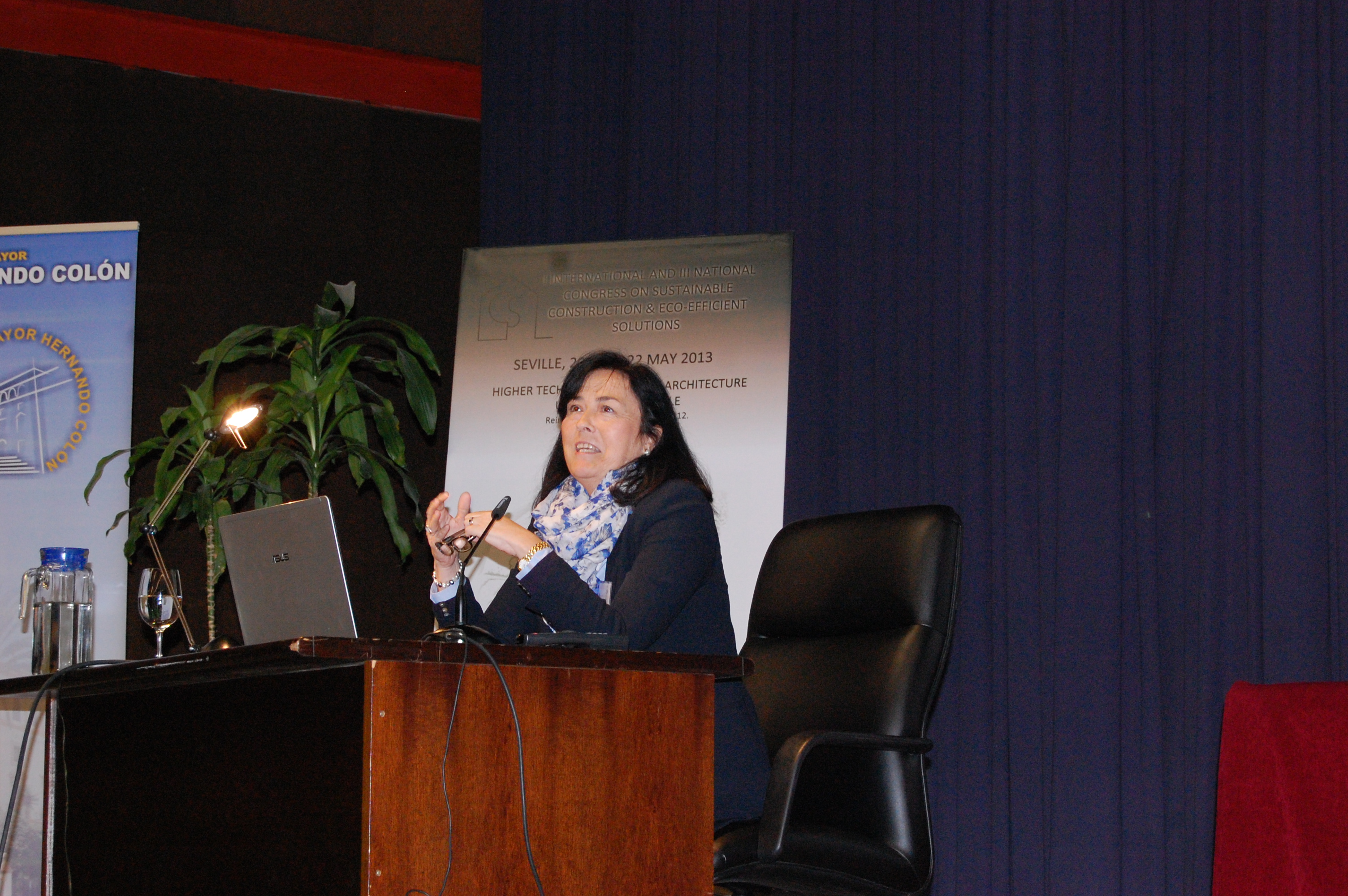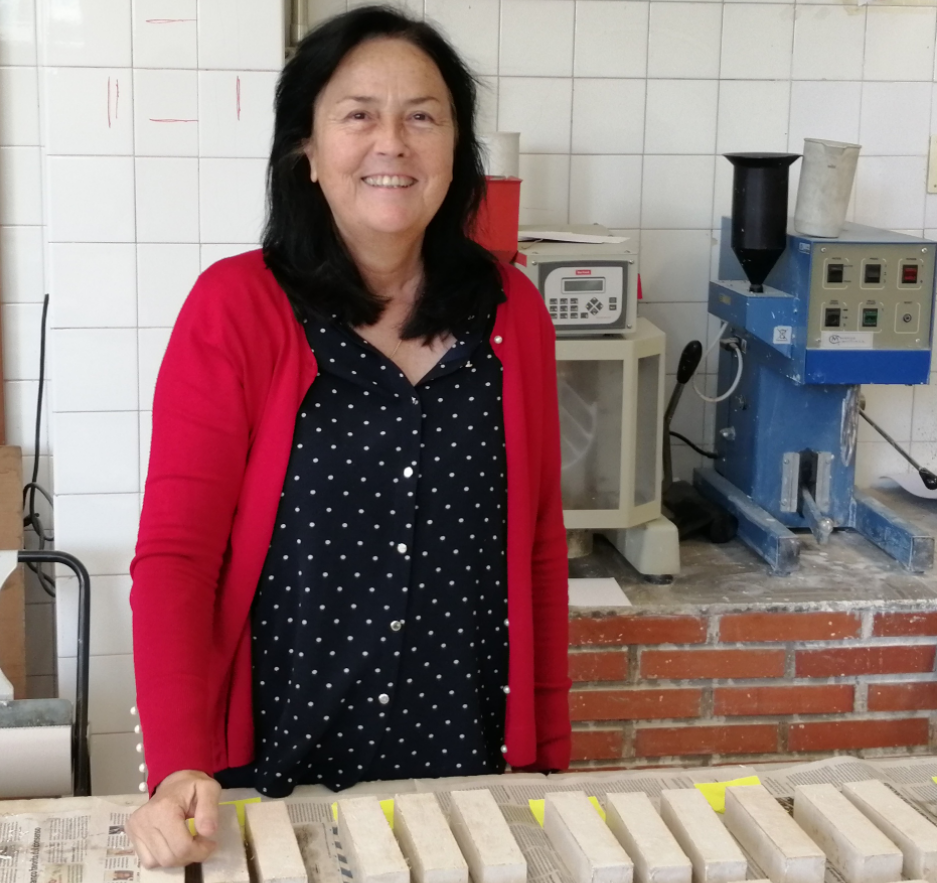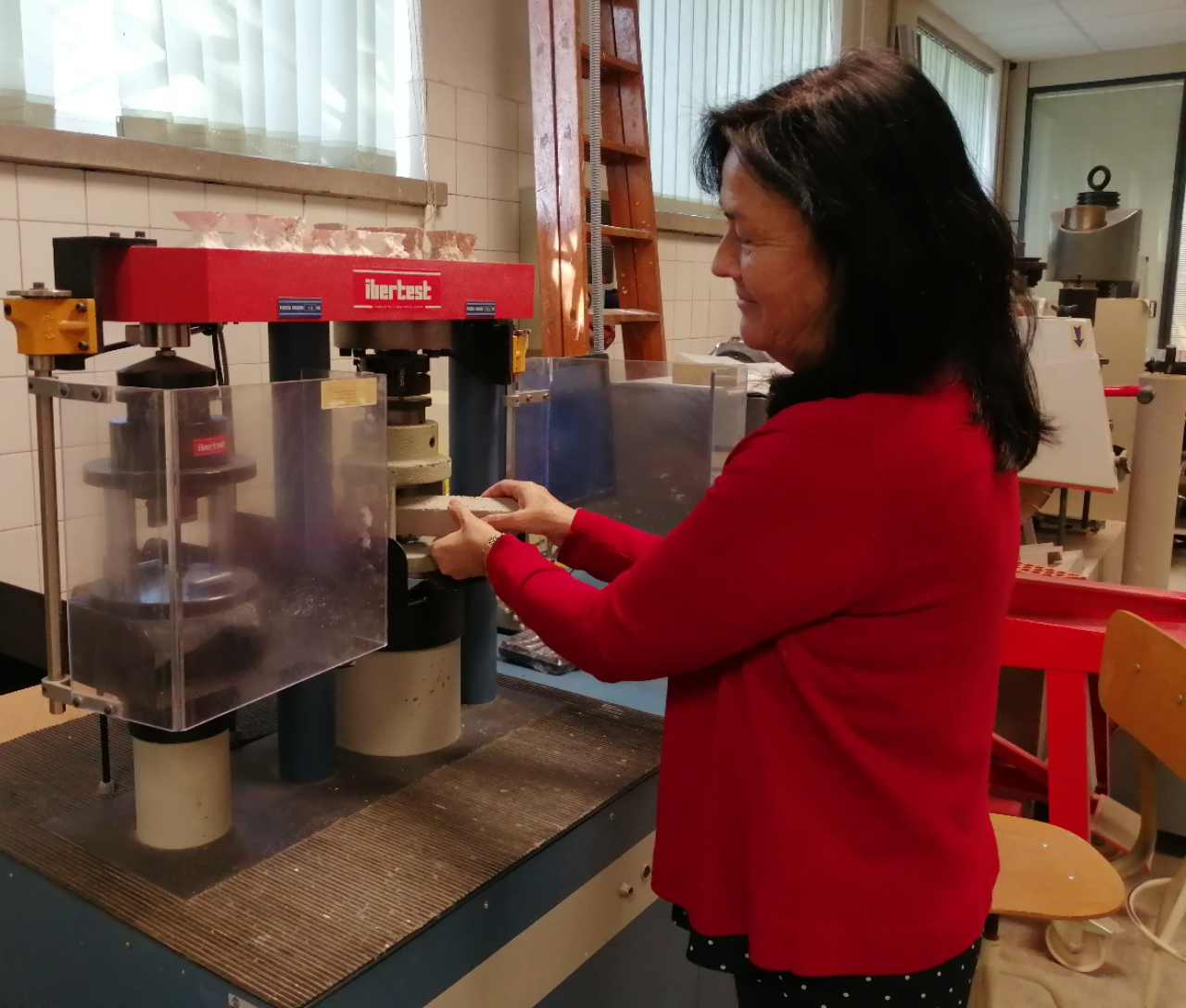Not only has she succeeded in obtaining materials with new eco-friendly properties, but she has begun to work on the groundbreaking trend of regenerative sustainability, an innovative way of understanding sustainability that aims for a positive impact on people’s health and wellbeing, rather than generating adverse effects.
“I’ve always been interested in the relationship between construction and the environment. I started working on sustainability while searching for building solutions made from local materials in an effort to avoid the issue of transportation. I worked with plaster, cement, and lime,” explains del Río Merino, a professor at the Advanced Technical School of Building (ETSEM) of the Universidad Politécnica de Madrid (UPM).
Her passions include conducting applied research and serving as a doctoral thesis advisor, mainly due to the relationships she maintains with doctoral candidates as they develop their theses and train as researchers.
From her own doctoral thesis in 2000, she began to see the possibilities of incorporating waste into conglomerate materials. She worked with rubber, adding it to plaster and cement; she tried substituting expanded clay with olive pits; she toyed with rice residue and aggregates from cement and ceramic materials.
“My first encounter with waste was looking for an application for the pruning remains of cork. Later, in the lab, I added other types of waste to the plaster to make it more eco-friendly and improve its fragility and mechanical behavior.”

Waste digestion
“We thought that a portion of raw materials could be replaced with other waste, thus the construction materials themselves would serve as waste digesters, or waste-to-resource. At first, the members of the research team that I coordinate, the TEMA group from ETSEM-UPM... we were called the ‘waste people,’” she recalls, because very few people were using waste as a raw building material.
“Later on we began working with people from other universities and with other types of industrial waste, like polypropylene, sawdust, polystyrene, cable plastics, and construction waste, etc. The goal has always been to reduce the consumption of raw materials and manipulate some of the properties in order to improve mechanical behavior and reduce the density of materials to enhance their capacity for thermal and, occasionally, acoustic insulation, etc.” del Río continues.
She is currently working with researchers from the Universidad Federico II in Naples to create geopolymers from demolition waste. “We use ash from power plants, tuff (volcanic rock from the Naples area, used to build many of the region’s monuments), and ceramic waste.”

European project: zero + positive impact
Four years ago she was appointed to the management committee of the European COST-Restore (Rethinking Sustainability Towards a Regenerative Economy) project, focused on “restorative sustainability.” Prior to that, she searched for a way to convert waste into raw materials, generating zero impact. Now, with regenerative sustainability, she aims for building materials to have a positive impact. “The impact of buildings cannot remain neutral; they have to help reduce climate change. Therefore, we must go far beyond sustainability toward positivity, improve people’s wellbeing and comfort, and generate positive energy and health,” she explains.
At the moment del Rio Merino is working with the Arpada Chair to define strategies for improving air quality in homes for the elderly. Some of these strategies include designing materials that incorporate waste and additives that absorb pollutants like formaldehyde, CO2, and other volatile particles.
Training in coaching
Another talent stands out on del Rio Merino’s CV. As director of the School of Building for eight years, she saw the need to train as a coach in order to manage groups of people with different profiles (professors, students, coworkers, etc.). “I managed to learn many things that I didn’t know about team management. It also helped improve my communication skills in general and intergenerational communication specifically, which is so important for teachers,” she concludes.
